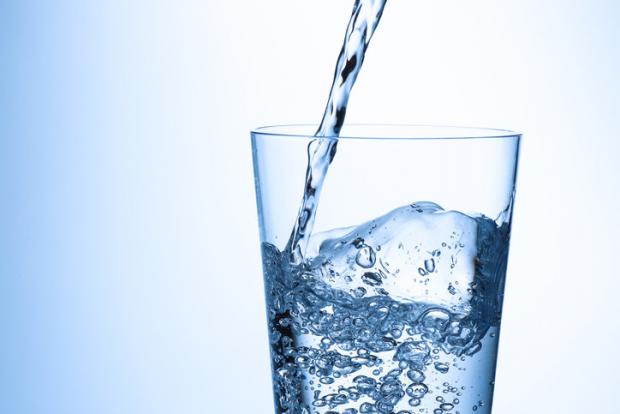
Breaking News
 Voter Fraud Is About To Explode: ITS BLOWING UP IN THEIR FACES thanks to Trump and Tulsi
Voter Fraud Is About To Explode: ITS BLOWING UP IN THEIR FACES thanks to Trump and Tulsi
 Ahead of US-Iran Talks, Netanyahu Tells Cabinet 'Conditions' Could Lead to Regime Change...
Ahead of US-Iran Talks, Netanyahu Tells Cabinet 'Conditions' Could Lead to Regime Change...
 SpaceX Authorized to Increase High Speed Internet Download Speeds 5X Through 2026
SpaceX Authorized to Increase High Speed Internet Download Speeds 5X Through 2026
 Did Brussels Interfere In Europe's Elections? Fallout Spreads
Did Brussels Interfere In Europe's Elections? Fallout Spreads
Top Tech News
 How underwater 3D printing could soon transform maritime construction
How underwater 3D printing could soon transform maritime construction
 Smart soldering iron packs a camera to show you what you're doing
Smart soldering iron packs a camera to show you what you're doing
 Look, no hands: Flying umbrella follows user through the rain
Look, no hands: Flying umbrella follows user through the rain
 Critical Linux Warning: 800,000 Devices Are EXPOSED
Critical Linux Warning: 800,000 Devices Are EXPOSED
 'Brave New World': IVF Company's Eugenics Tool Lets Couples Pick 'Best' Baby, Di
'Brave New World': IVF Company's Eugenics Tool Lets Couples Pick 'Best' Baby, Di
 The smartphone just fired a warning shot at the camera industry.
The smartphone just fired a warning shot at the camera industry.
 A revolutionary breakthrough in dental science is changing how we fight tooth decay
A revolutionary breakthrough in dental science is changing how we fight tooth decay
 Docan Energy "Panda": 32kWh for $2,530!
Docan Energy "Panda": 32kWh for $2,530!
 Rugged phone with multi-day battery life doubles as a 1080p projector
Rugged phone with multi-day battery life doubles as a 1080p projector
 4 Sisters Invent Electric Tractor with Mom and Dad and it's Selling in 5 Countries
4 Sisters Invent Electric Tractor with Mom and Dad and it's Selling in 5 Countries
Hydration equilibrium: Navigating the delicate balance between dehydration and overconsumption

While chronic dehydration silently plagues millions, a lesser-known danger, acute water intoxication, highlights the perils of overzealous consumption. This revelation, drawn from both modern medical case studies and ancient Traditional Chinese Medicine (TCM), underscores that optimal health hinges not on blindly guzzling gallons, but on understanding the body's complex, individualized relationship with water. The emerging consensus from health experts is that the path to proper hydration requires listening to the body's subtle signals rather than adhering to rigid, one-size-fits-all quotas.
The two extremes: From dehydration to water poisoning
The human body is predominantly water, a substance crucial for transporting oxygen, flushing waste and regulating temperature. Conventional medical wisdom, as highlighted by researchers like Dr. Fereydoon Batmanghelidj, has long pointed to a widespread dehydration crisis, often driven by a preference for sugary, caffeinated beverages that deplete the body's reserves. The consequences are well-documented: fatigue, headaches, joint pain and impaired cognitive function. Studies show that losing just 2 percent of body weight in water can significantly hinder attention and motor coordination.
Conversely, the extreme opposite, water intoxication, is a medical emergency. A stark example occurred when a Taiwanese student consumed 6,000 milliliters of water in 30 minutes, leading to dizziness, vomiting, convulsions and a near-fatal outcome. This condition, known medically as hyponatremia, arises when excessive water intake drastically dilutes blood sodium levels, disrupting brain and bodily functions. While rare, it serves as a critical reminder that even life's essential elements require mindful consumption.
A holistic view: TCM and the body's water metabolism
Traditional Chinese Medicine offers a sophisticated framework for understanding hydration that extends beyond simple volume measurement. According to TCM practitioner Naiwen Hu, effective water metabolism relies on the health of both the kidneys and the spleen. The spleen, part of an energy system that includes the stomach and pancreas, is responsible for nutrient absorption and transforming fluids. When spleen function is weak, a condition known as "dampness" can occur, where the body retains excess moisture. Individuals with this constitution may experience bloating, cold hands and feet, and a persistent dry mouth despite frequent drinking. For them, consuming large volumes of water can exacerbate sluggishness and imbalance, creating a cycle of discomfort.



